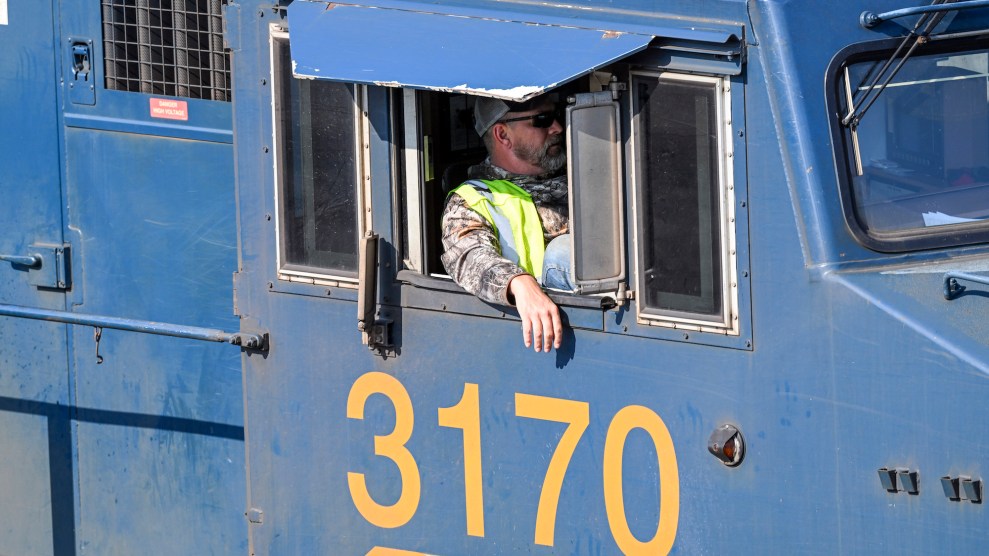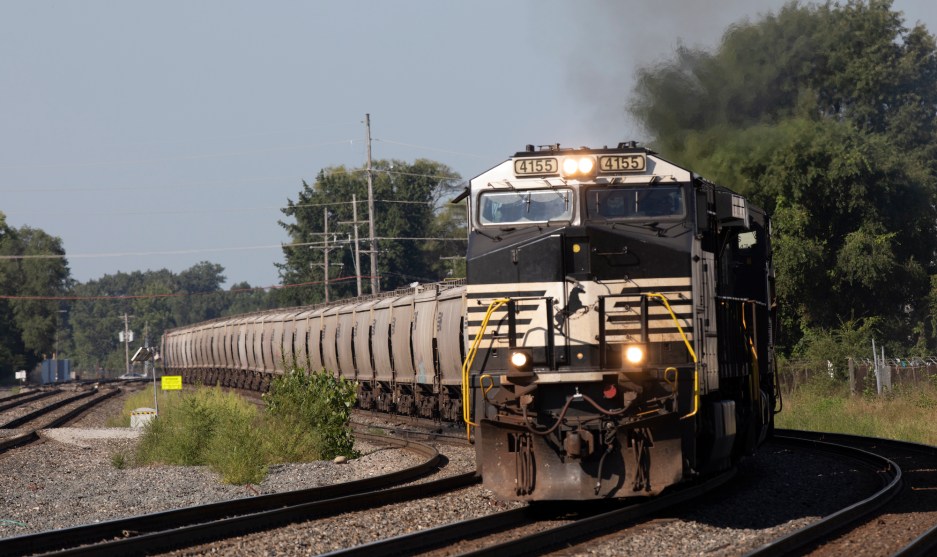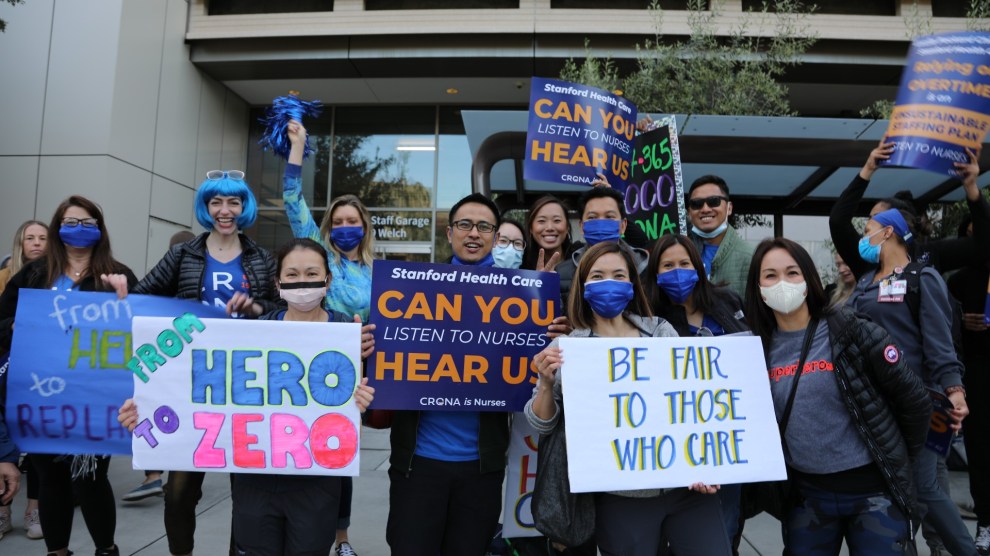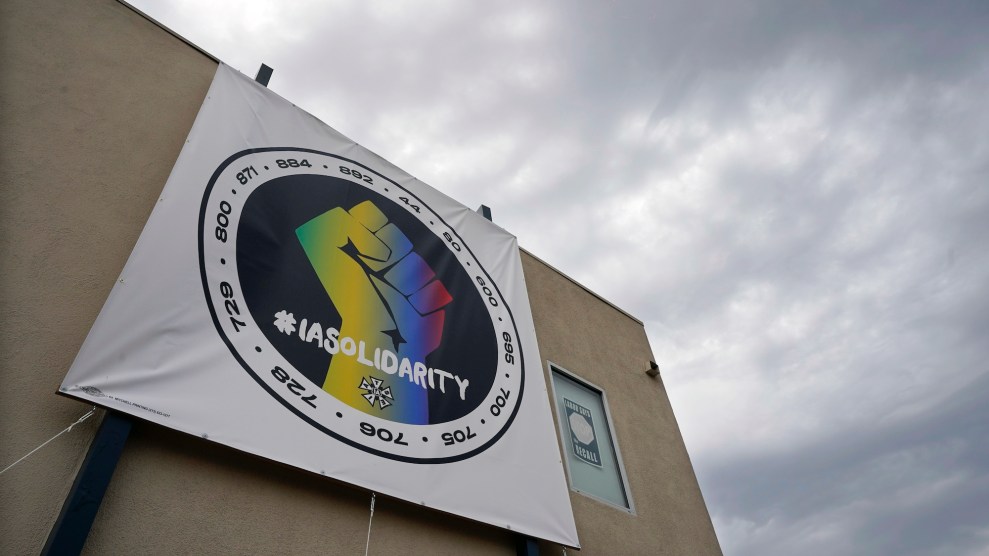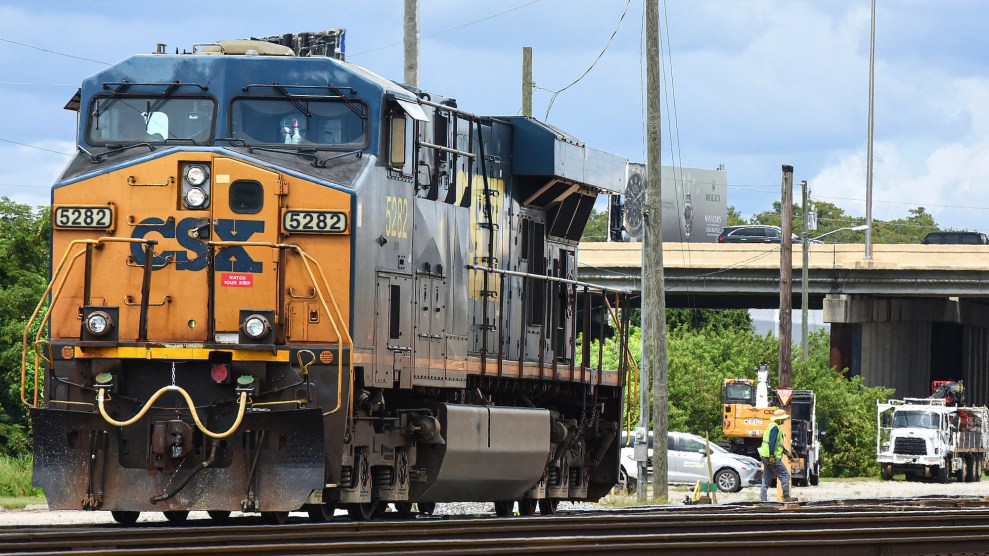
Paul Hennessy/SOPA/Zuma
Earlier this month, when railroad workers threatened to strike over “grueling” conditions—like formal discipline for taking any time off at all—the Biden administration brokered a tentative deal, avoiding a work stoppage that could have crippled supply chains and cost the US billions of dollars a day. Crisis averted.
Or not. As more details of the deal come to light, it’s unclear that union members—who have to vote on the deal—will get on board. Workers had complained of weeks on call without a day off, overwork after staff cuts, and underpayment amid high inflation. One engineer told my colleague Noah Lanard that workers were “just fighting for the basic right to be able to be people outside of the railroad”—not for the $10 million–plus pay packages of top rail CEOs.
The current proposal offers raises, limits the rise of health care premiums, and tweaks a tight scheduling system used to cut staffing. But the sticking point in negotiations has been sick time. Despite rail workers’ unpredictable schedules, they’re penalized for sick days, medical visits, and family emergencies. The consequences of the strict sick-day policy can be fatal: In June, the Washington Post reported, a locomotive engineer died when he suffered a heart attack on the job—after postponing a doctor’s visit because he’d been called into work.
The tentative agreement removes penalties for up to three routine medical visits a year—but only on Tuesdays, Wednesdays, or Thursdays, and only if scheduled 30 days in advance. As some union members pointed out to the New York Times, you can’t always know a month ahead of time that you’ll need care, and unions already often manage to undo the discipline workers receive after unpaid leaves for health care.
Formalizing the deal will be an uphill battle. As the Post points out, some 115,000 union members have to ratify the contracts to avoid a strike. Two major unions haven’t accepted the agreement, and a third, smaller one already rejected it, aiming to make improvements by the end of September. The remaining votes are expected to take place across the following two months.


